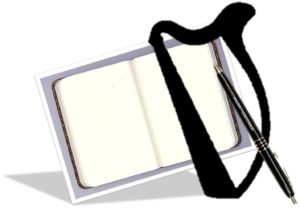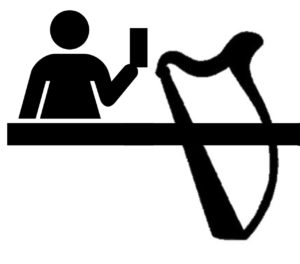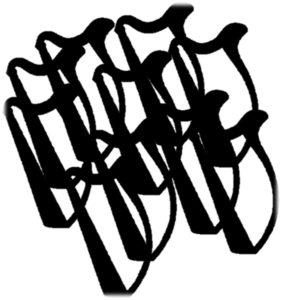If you are taking lessons, you likely have a notebook of some kind at the request of your teacher. Many music teachers ask their students to have a notebook, but many students are not able to use these to best effect. How do you use yours?
First, you should know that this notebook is not a diabolical plot on the part of your teacher, designed to make you crazy. Nor is it a thinly veiled means of making you buy more books you won’t use.
I like to structure these notebooks to act as a communication device. The notes are not only a place to give instructions but also to start a conversation. I ask my students to write a note each day that they practice – to indicate what has gone well and what has not gone well.
I find that the teacher’s bench is much like the doctor’s office stool – simply sitting there results in forgetting everything you meant to say! Writing in the notebook helps you to remember what you meant to bring up at your lesson so that it does not evade you when it’s time to bring it up.
Think of the notebook as shared with your teacher. But mostly you keep it for yourself. This is where you capture your thoughts about your practice and the music as you work through it – the good, the bad, the indifferent, the incredulous, the awe and the awful! Capture it all – not only to go through the exercise of the capture but also for later review and reflection.
Really your notebook is a journal. As with any journal, the point is to capture your progress, to find what you notice seems to be bubbling up, and to reinforce the discipline of both practicing and journaling. It will help you get more from your practice. The added benefit is that it will help you get more from your lesson. If you don’t have a notebook now (or if you always seem to “forget” yours at your lesson) get one you like and start using it now – when you try to remember what you did this week, you’ll be glad you did!



